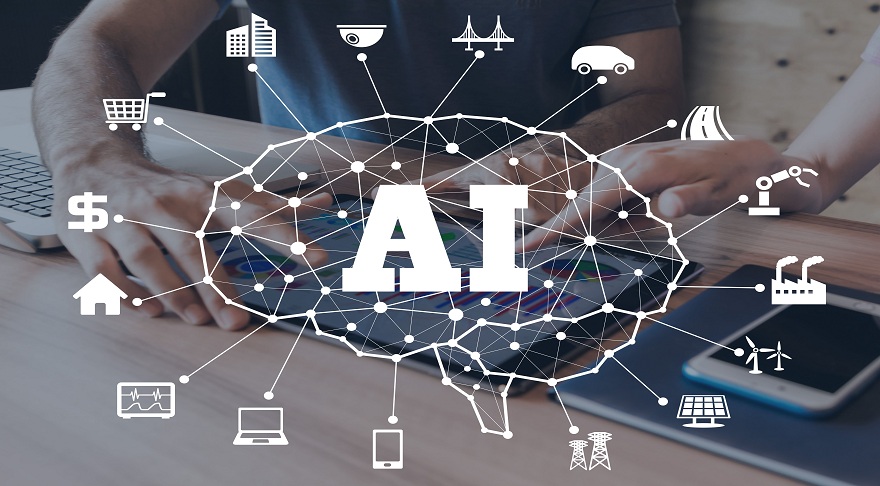
August 2, 2023, 3 Comments
AI Integration in Digital Marketing: Best Practices and Case Studies
Artificial Intelligence (AI) has become a game-changer in the constantly changing digital world, especially in the field of marketing. Additionally, firms may develop highly customized and targeted advertising by utilizing AI. With that, fostering meaningful connections with their audiences. This guest post explores the best practices and case studies that showcase how AI integration in digital marketing can revolutionize customer engagement and drive exceptional results.
Understanding the Customer Journey through AI:
At each phase of the buyer’s journey, AI helps marketers to obtain deep insights into consumer behavior, preferences, and issue areas. In addition, AI computers may spot trends and patterns that people would overlook by analyzing enormous volumes of data. Additionally, this enables companies to precisely focus their marketing tactics to the demands of their target demographic.
Best Practice: Implementing AI-powered analytics tools to track and analyze customer interactions across multiple touchpoints, enabling businesses to understand their customers’ journey holistically.
Personalization at Scale:
Those days are gone when one-size-fits-all marketing. Besides, AI empowers businesses to deliver hyper-personalized content and recommendations to each individual customer, driving engagement and conversion rates.
Best Practice: Leveraging AI-driven recommendation engines and dynamic content generation to deliver personalized messages, product recommendations, and offers based on customer preferences, browsing history, and past interactions.
Chatbots and Customer Support:
In addition, AI-driven chatbots have revolutionized customer support by providing instant responses to customer queries, 24/7. Additionally, these best AI Chatbots can respond to common questions, freeing up individuals to concentrate on harder jobs.
Best Practice: Integrating AI-powered chatbots into the website and social media platforms to offer real-time support, enhancing customer satisfaction and building brand loyalty.
Predictive Analytics for Enhanced Targeting:
Furthermore, Artificial Intelligence can predict future customer behavior with high accuracy, enabling marketers to optimize their targeting efforts. Nonetheless, by identifying high-value leads and potential churners, businesses can allocate their resources effectively and maximize their return on investment (ROI).
Best Practice: Utilizing AI-powered predictive analytics tools to segment audiences and create targeted campaigns based on customers’ past interactions, behaviors, and demographic data.
Case Study: Amazon’s E-commerce increased conversions by 30% using predictive analytics to recommend personalized product bundles to customers based on their previous purchases and browsing behavior.
AI-Generated Content and Creativity:
AI is transforming content creation by generating high-quality, relevant, and engaging content at scale. Firstly, from social media posts to email subject lines, AI can help marketers craft compelling copy that resonates with their audience.
Best Practice: Augmenting human creativity with AI-powered content generation tools to produce diverse content types. Besides, this will save time and resources while maintaining brand consistency.
Case Study: Expedia Travel Agency used AI-generated social media posts to increase their social media engagement by 40%. Consequently resulting in a significant boost in website traffic and bookings.
AI vs. Human Creativity and Intuition:
The most successful AI integrations in digital marketing strike a delicate balance between data-driven insights and human expertise. Marketers should always view AI as an augmentation to their capabilities to sell Cheap Dri Fit Polo Shirts. Nevertheless, using it to enhance their decision-making processes rather than entirely relying on automated solutions.
To effectively integrate AI into digital marketing, organizations should follow these best practices:
1. Invest in Quality Data:
AI thrives on data, and having accurate and relevant information is vital for the successful implementation of Artificial Intelligence. Ensure your data is well-organized, clean, and compliant with privacy regulations.
2. Continuously Learn and Adapt:
AI technologies are ever-evolving, and marketers need to stay updated with the latest advancements to make the most out of AI integration. Continuous learning and experimentation are key to staying ahead of the competition.
3. Prioritize Customer Privacy and Transparency:
With AI processing large amounts of customer data, it is crucial to prioritize customer privacy and clearly communicate how AI is being used to enhance their experiences.
4. Test and Optimize:
Implementing AI in digital marketing requires iterative testing and optimization. Use A/B testing and performance analysis to fine-tune AI-driven campaigns and maximize their impact.
5. Foster a Collaborative Culture:
Encourage collaboration between marketing teams and data scientists. The synergy of creative marketing minds with AI expertise can lead to groundbreaking innovations.
Voice Search and Optimizing SEO:
Additionally, voice search has evolved into an important part of the digital world with the emergence of smart loudspeakers and speech-activated chatbots. Additionally, AI is essential for comprehending natural language and purpose, which has completely changed Search Engine Optimization (SEO) tactics. Moreover, AI-powered SEO tools can analyze voice search queries to uncover conversational keywords and phrases. This further helps businesses tailor their content to match user intent better. Nevertheless, by optimizing for voice search, brands can enhance their visibility in voice search results and gain a competitive edge in the voice-first world.
AI in Content Marketing:
Content is king, and Artificial Intelligence is the crown that elevates its reign. With that, AI-powered content creation tools can generate blog posts, articles, social media captions, and even video scripts. Besides, this will free up valuable time for marketers to focus on strategy and creativity. AI also assists in content ideation by analyzing trending topics about clothing and customer interests in tank tops.
Further, ensuring that brands create content about custom cotton polo shirts that resonates with their target audience. This synergy of AI-generated content and human creativity leads to more engaging and captivating stories that leave a lasting impression on audiences.
The Ethics of AI in Digital Marketing:
While AI offers immense potential for personalization and customer-centric marketing, it also raises ethical considerations. Additionally, striking the right balance between personalization and privacy is crucial for maintaining trust with customers. Further, marketers must be transparent about their use of AI and how customer data is being utilized. Finally, by implementing robust data protection measures and obtaining explicit consent from customers is essential to ensure that AI-driven marketing practices are ethical and respectful of individual privacy rights.
AI and Data Security:
As AI becomes more prevalent in digital marketing, ensuring data security becomes paramount. In addition, AI-driven tools heavily rely on customer data for analysis and personalization, making data breaches a significant concern. Moreover, to safeguard customer information, businesses must invest in robust cybersecurity measures. This includes encryption protocols, multi-factor authentication, regular data audits, and employee training to identify and prevent potential security vulnerabilities.
Conclusion:
In conclusion, the seamless integration of AI in digital marketing has opened doors to unparalleled opportunities for businesses to forge deeper connections with their audiences. Besides, by leveraging AI’s capabilities in personalization, content creation, customer segmentation, and data analysis, marketers can craft highly targeted campaigns that resonate with customers on a profound level.
However, as AI reshapes the marketing landscape, it is essential to strike a harmonious balance between leveraging its potential and upholding ethical practices to ensure customer trust and data security. Embracing AI with a customer-centric approach will undoubtedly redefine the future of digital marketing.






What are the Ethical Considerations in Video Marketing? - HS Marketing
August 3, 2023[…] In this post, we shall have a look at ethical considerations that businesses should not overlook in their marketing campaigns. […]
Why should disavow links? Unnatural links are harmful to a website - HS Marketing
September 20, 2023[…] In a recent 12-month-long experiment, it was tested to see what kinds of links are most beneficial. The experiment involved manual outreach and relationship building to ensure compliance with Google’s guidelines. The results indicated that certain links are more effective: […]
Adapting to new B2B Marketing trends to propel your business - HS Marketing
January 23, 2024[…] includes the integration of AI and automation, video marketing dominance, personalization at scale, voice search optimization, and influencer […]